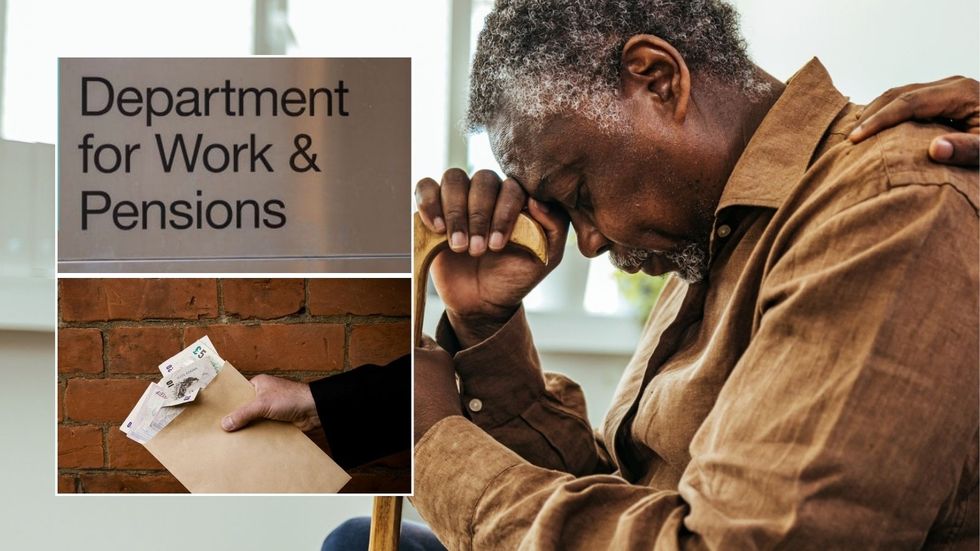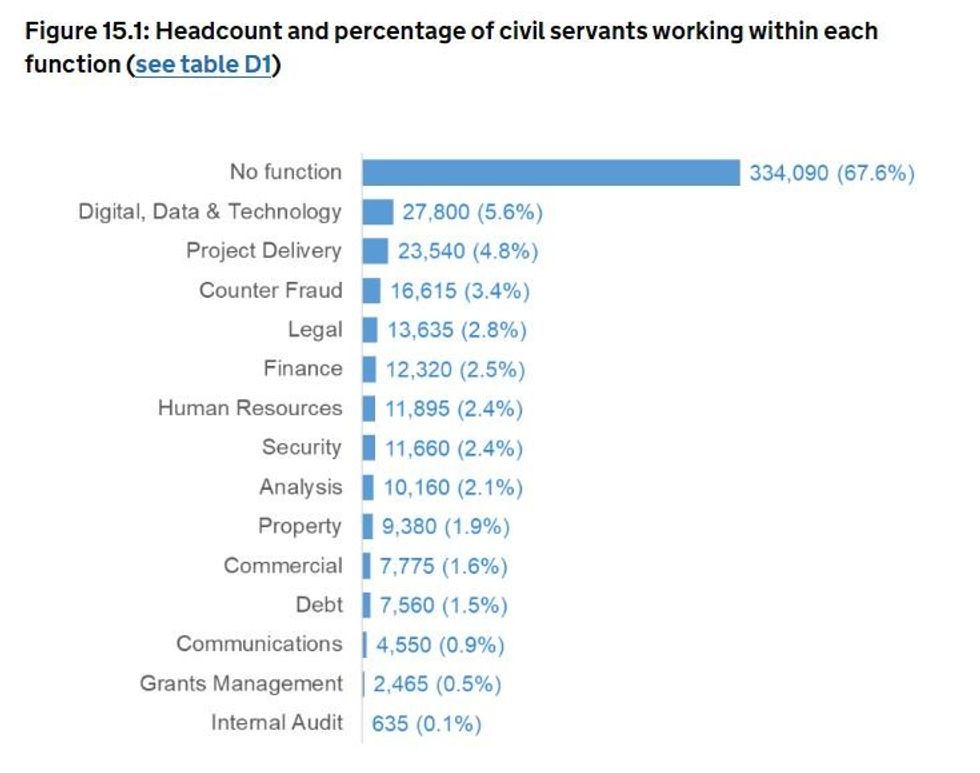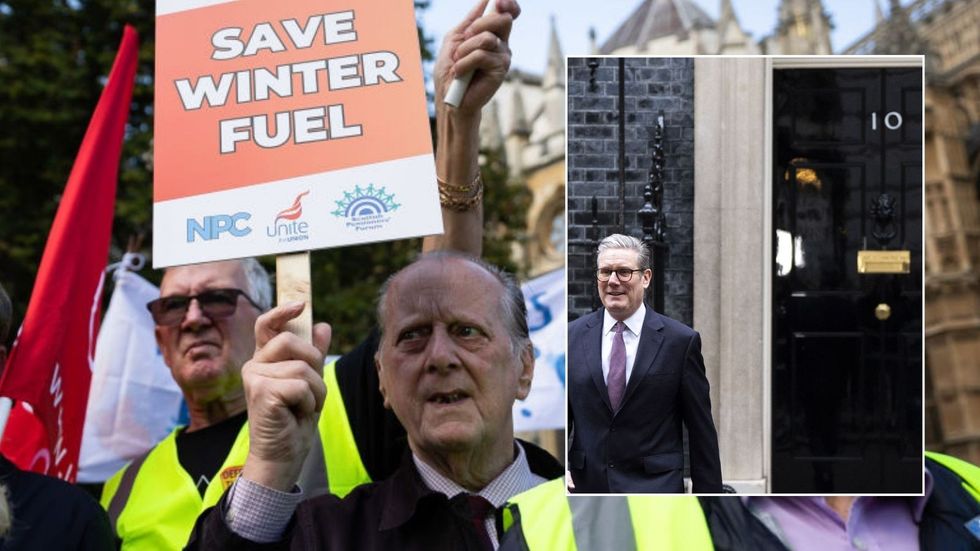Outrage as DWP civil servants awarded bonuses of up to £14k while stripping pensioners of Winter Fuel Payment
Civil servants working the Department for Work and Pensions (DWP) have been awarded with bonuses of up to £14,000 while taking away Winter Fuel Payments from pensioners, according to Government data.
Last year, Chancellor Rachel Reeves confirmed that Labour would means-test the up to £300 in energy bill support which was previously universal for Britons of state pension age. Older people will now need to be in receipt of means-tested support from the DWP, such as Pension Credit.
In 2023-24, the DWP paid out £645,685 in end of year bonuses to senior civil servants, figures obtained by the Daily Mail as part of a Freedom of Information (FoI) request have revealed.
This sum of money would be enough to cover the Winter Fuel Payments of more than 3,000 pensioners.
The bonus amount was shared by 91 of the highest ranking officials with the median payment coming to £7,250. The largest bonus awarded was £14,000, the Mail reports.
Overall, the DWP awarded staff with almost £12million of taxpayers’ money in bonuses last year.
This has sparked fury among campaigners, who have criticised Labour’s decision to means-test the Winter Fuel Allowance during the ongoing cost of living crisis.
Do you have a money story you’d like to share? Get in touch by emailing money@gbnews.uk.

Reeves cited the Government’s mission to plug the £22billion “black hole” in the public finances which she claims has been left by consecutive Conservative Governments.
Despite this, the DWP has received criticism from think tanks for managing a benefits system that has lost an estimated £13.9bn in taxpayer money to fraud and error within the last year.
Elliot Keck, head of campaigns at the TaxPayer’ Alliance, explained: “These bonuses for bumbling bureaucrats are wildly unjustified given the catastrophic levels of fraud and error on DWP’s watch.
“While taxpayers face a budget of horrors, civil servants can sit comfortable knowing they have the pay, pensions and perks that the rest of the country can only dream of.”

Based on figures from the FoI request, permanent secretary Sir Peter Schofield received performance related pay of between £10,000 and £15,000 in 2024. As it stands, his salary rests somewhere between £195,000 and £200,000.
Furthermore, it is understood that three other executive directors at the DWP received bonuses in the same pay bracket. Some £11.2m in bonuses was paid to more than 82,000 junior staff members.
However, the average sum awarded to this group of workers came to £150 with the biggest payment to a junior staffer being £214. These bonuses were based on the employee performance in the last financial year.
If the total £11.9m handed out in bonuses instead went towards the Winter Fuel Payment scheme, it would have paid the allowance for an estimated 59,623 older Britons.
It should be noted that most junior grade civil servants were in receipt of a one-off cost of living payment last year, including staff members who currently work for the DWP.
A Government spokesperson said: “It is important the Civil Service is able to remunerate its staff in line with the private sector, to attract and retain the best talent, as it delivers on the government’s commitments to working people.
LATEST DEVELOPMENTS:
- DWP pays £500m in state pension payments to dead people with no way of getting money back
- Cold Weather Payments alert: Energy bill support could be triggered after Met Office warning
- Major overhaul to PIP in 2025 – full breakdown of DWP disability benefit changes

“We have had to make tough choices, but are committed to supporting pensioners – with millions set to see their state pension rise by up to £1,700 this parliament through our commitment to the triple lock and over a million pensioners will still receive the Winter Fuel Payment.”
According to The Centre for Ageing Better, more than 2.5 million pensioners who are losing their Winter Fuel Payments have incomes below levels needed for a dignified life.
The group’s research determined that one in four people aged 65 and over are deemed too rich for help with their energy bills but too poor to live a dignified life according to the Minimum Income Standard (MIS).
Holly Holder, Deputy Director for Homes at the Centre for Ageing Better, explained: “The pensioners identified in our research were already living on inadequate incomes before their Winter Fuel Payments were taken from them.”

